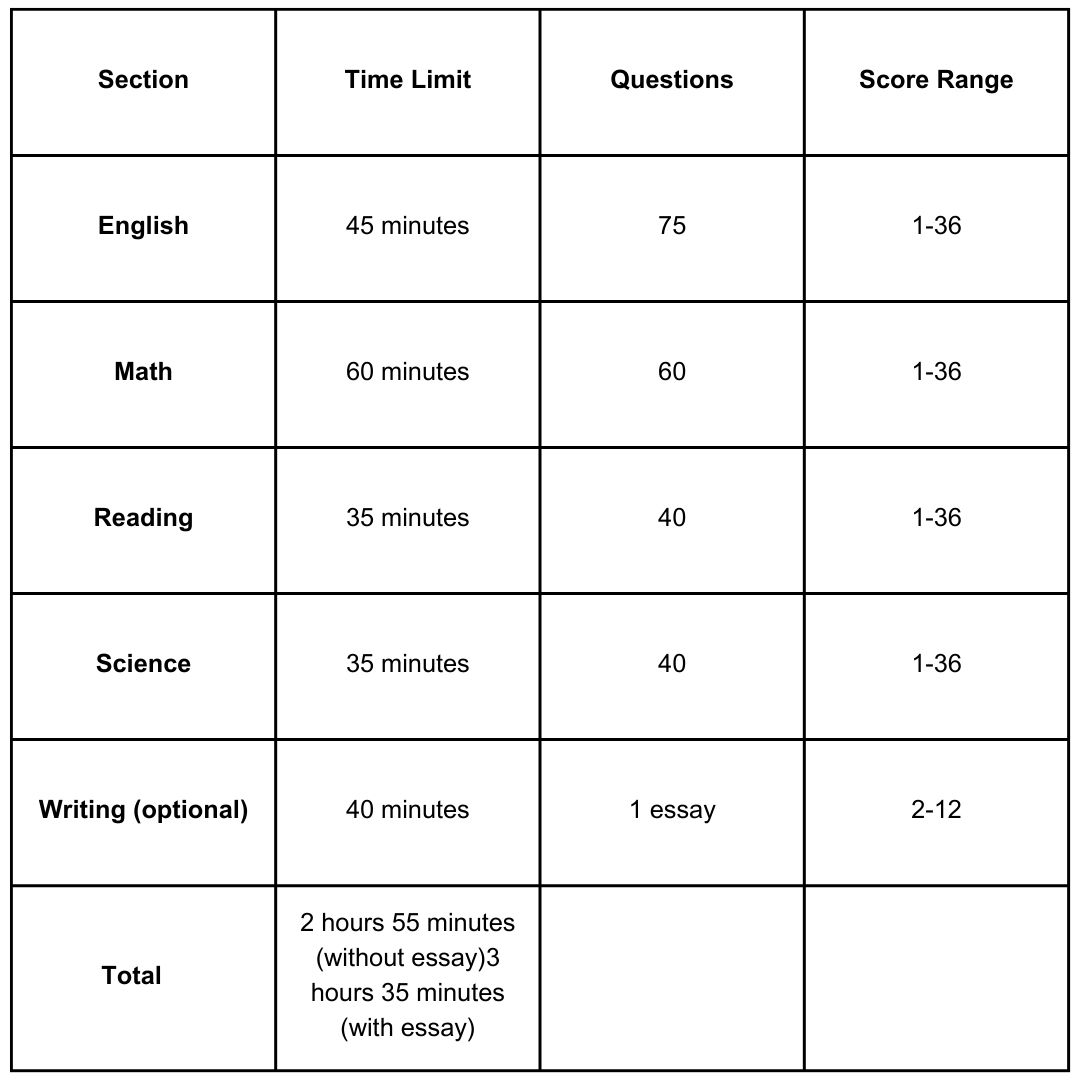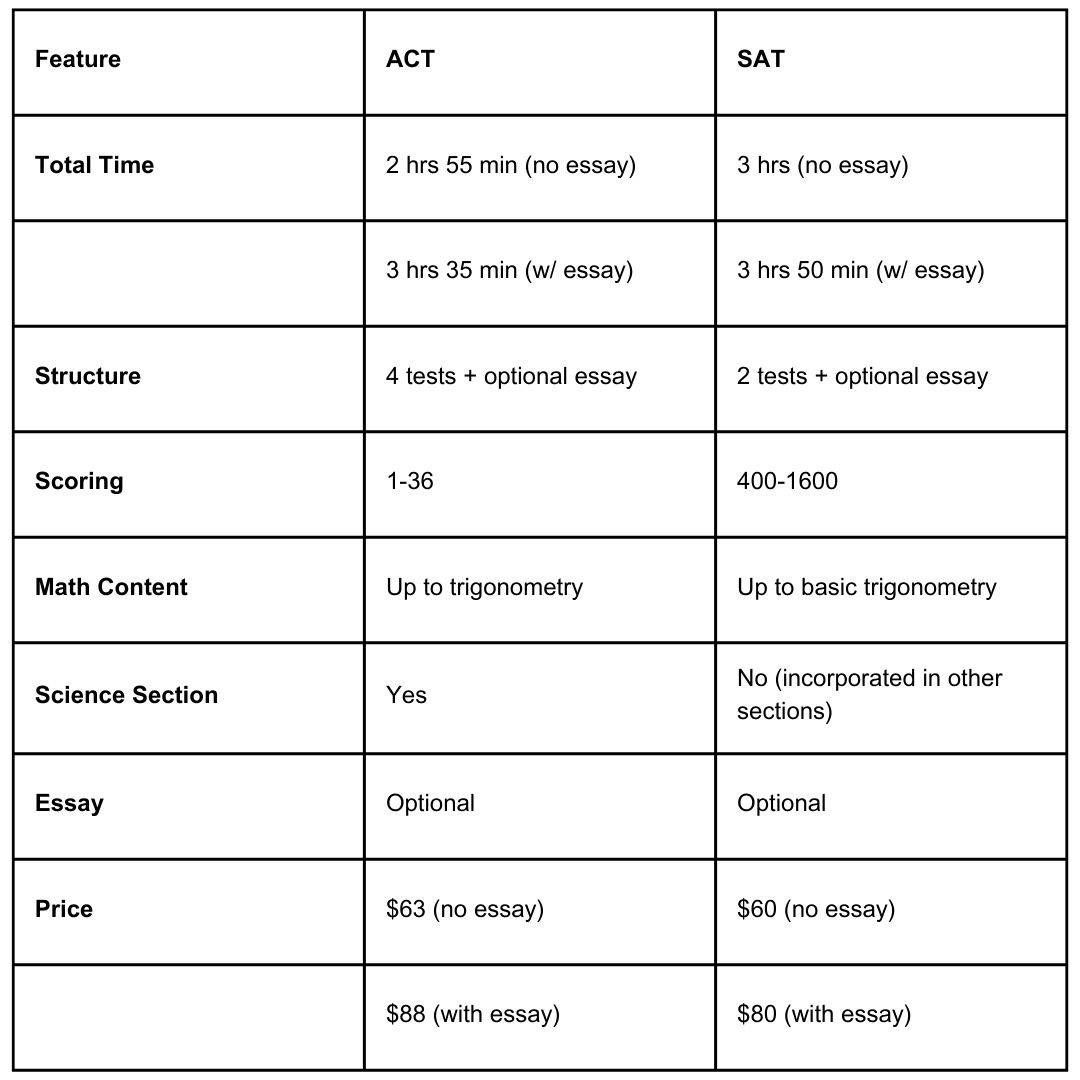
Are you a high school student thinking about college? If so, you've probably heard about the ACT test. But what is an ACT test, exactly? Don't worry - we're here to break it down for you in simple terms.
When it comes to getting into college, there's more to it than just your grades. Many colleges look at something called standardized test scores. Many students take these tests, and they help colleges compare students from different schools. One of the most popular of these tests is the ACT.
The ACT is a big deal in the college application process. Many schools require you to submit your ACT scores when you apply. Understanding the ACT and how to do well on it is really important for your future.
Let's start with the basics. The meaning of ACT test is pretty straightforward - it stands for American College Testing. The ACT is a standardized test used for college admissions in the United States. It was first introduced in 1959 as an alternative to the SAT (another popular college admission test).
The ACT is designed to measure your readiness for college. It tests your knowledge and skills in four main areas: English, Math, Reading, and Science. There's also an optional Writing test. The idea is to show colleges how well you might do in college-level courses.
The ACT is different from many tests you take in school because it's not about memorizing facts or formulas. Instead, it's designed to assess your critical thinking and problem-solving skills. This means that while knowledge is important, how you apply that knowledge is even more crucial.
You might be wondering why you should bother taking the ACT. Here are a few good reasons:
Typically, students take the ACT in their junior or senior year of high school. The test is offered several times throughout the year, usually in September, October, December, February, April, June, and July. Many students take it more than once to try to improve their scores.
It's a good idea to take your first ACT no later than the fall of your senior year. This way, you'll have your scores in time for college application deadlines. If you're not happy with your scores, you'll also have time to take it again.
Here's a suggested timeline:
Winter of Senior Year: Last chance to take the ACT for most college deadlines
Remember, each time you take the test, you'll gain more experience and familiarity with the format, which can help improve your scores.
Registering for the ACT is pretty straightforward. Here's what you need to do:
Make sure to register before the deadline for your chosen test date. There is a late registration option, but it costs extra.
When registering, you'll also have the option to sign up for the ACT's Educational Opportunity Service (EOS). This free service allows colleges and scholarship agencies to find you based on your academic interests and achievements.
Now, let's look into the details of what subjects are in the act. The ACT has four main sections, plus an optional Writing test. Here's a quick overview:

This section tests your understanding of standard written English and your ability to analyze text. You'll see passages with underlined portions, and you'll need to choose the best way to improve the writing or fix any errors. The English test covers six elements of effective writing:
The math section covers topics from basic arithmetic to advanced algebra and trigonometry. You're allowed to use a calculator, but many questions can be solved without one. The math test includes questions on:
In this section, you'll read several passages and answer questions about them. The passages cover topics in social studies, natural sciences, literary narrative, and humanities. Each Reading test includes:
Don't worry - you don't need to memorize a bunch of science facts for this test. Instead, it tests your ability to interpret scientific data and information presented in graphs, tables, and research summaries. The Science test includes three types of questions:
If you choose to take the Writing test, you'll be given a prompt about a complex issue and asked to analyze different perspectives on the issue. You'll then write an essay presenting your own argument on the topic.
Understanding the ACT order is important for your test-day strategy. The sections are always given in the order listed above, with the optional Writing test at the end.
Now that we've covered the ACT structure, let's talk about how many questions are on the act. In total, there are 215 multiple-choice questions across the four main sections, plus the optional essay.
After you take the ACT, you'll get several scores:
So, what is a good ACT test score? The average ACT score is around 21. However, if you’re wondering about “what is a passing ACT score,” that depends on the colleges you're applying to. Some highly selective schools might look for scores of 30 or higher, while others might accept lower scores.
Here's a general guide to ACT scores:
Remember, these are just guidelines. Each college has its own standards, and many consider factors beyond just test scores.
Many colleges also use something called "superscoring." This means they take your highest section scores from different test dates to create a new composite score. This can be helpful if you take the ACT multiple times and do better on different sections each time.
As of 2024, the basic registration fee for the ACT (without the Writing test) is $63. If you choose to take the Writing test as well, the total cost is $88. There are additional fees for things like late registration or sending scores to more than four colleges.
Here's a breakdown of some common fees:
If the cost is a concern, don't worry! The ACT offers fee waivers for students who demonstrate financial need. These waivers cover the basic registration fee and can be used up to four times. They also include other benefits like free score reports and waived application fees at participating colleges.
Now that you know what to expect, here are some tips to help you prepare:
You might be wondering about “What is the difference between the ACT and SAT tests”. While both are used for college admissions, there are some key differences:

Some key differences to note:
Some students find they perform better on one test than the other. If you're not sure which to take, you might consider taking a practice test for each to see which suits you better.
The ACT typically starts early in the morning, around 8:00 AM, though exact start times can vary by test center. Make sure to arrive at least 30 minutes before the scheduled start time.
On test day, here's what you can expect:
The entire process usually takes about 4-5 hours, ending around 12:30 PM or 1:00 PM.
The ACT might seem intimidating at first, but remember - it's just one part of your college application. With proper preparation and understanding of what to expect, you can approach the test with confidence.
Here's a quick recap of what we've covered:
Remember, the ACT is designed to test knowledge and skills you've been developing throughout your high school years. It's not about memorizing facts, but about showing your ability to think critically and solve problems.
As you prepare for the ACT, don't forget about the other parts of your college application. Your grades, extracurricular activities, essays, and recommendations are all important too. The ACT is just one piece of the puzzle that shows colleges who you are and what you can do.
If you're feeling overwhelmed by ACT preparation or want to ensure you're fully prepared, consider getting expert help. Logos Learning, online tutoring platform provides expert online ACT tutoring to help you achieve your best possible score.
Our experienced tutors understand the ins and outs of the ACT and can provide personalized strategies tailored to your strengths and weaknesses. Whether you're struggling with a particular section or aiming for a perfect score, Logos Learning can help you reach your goals.
Don't leave your college future to chance. Visit Logos Learning's website today to learn more about our ACT tutoring services and take the first step towards acing the ACT. Remember, investing in your education now can open doors to amazing opportunities in the future.